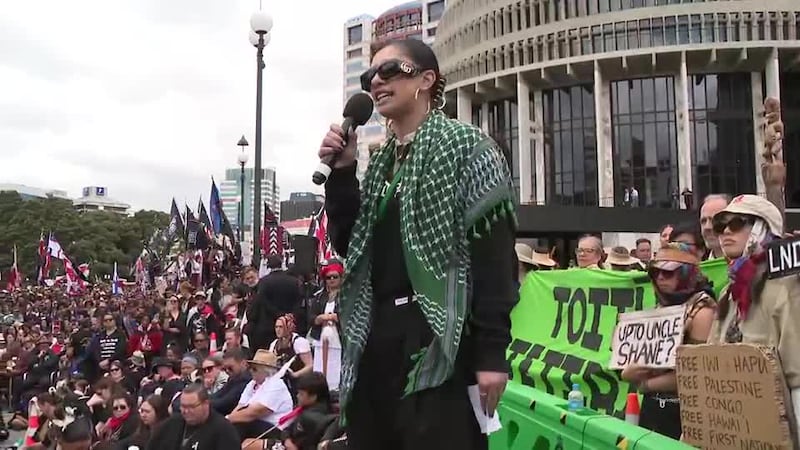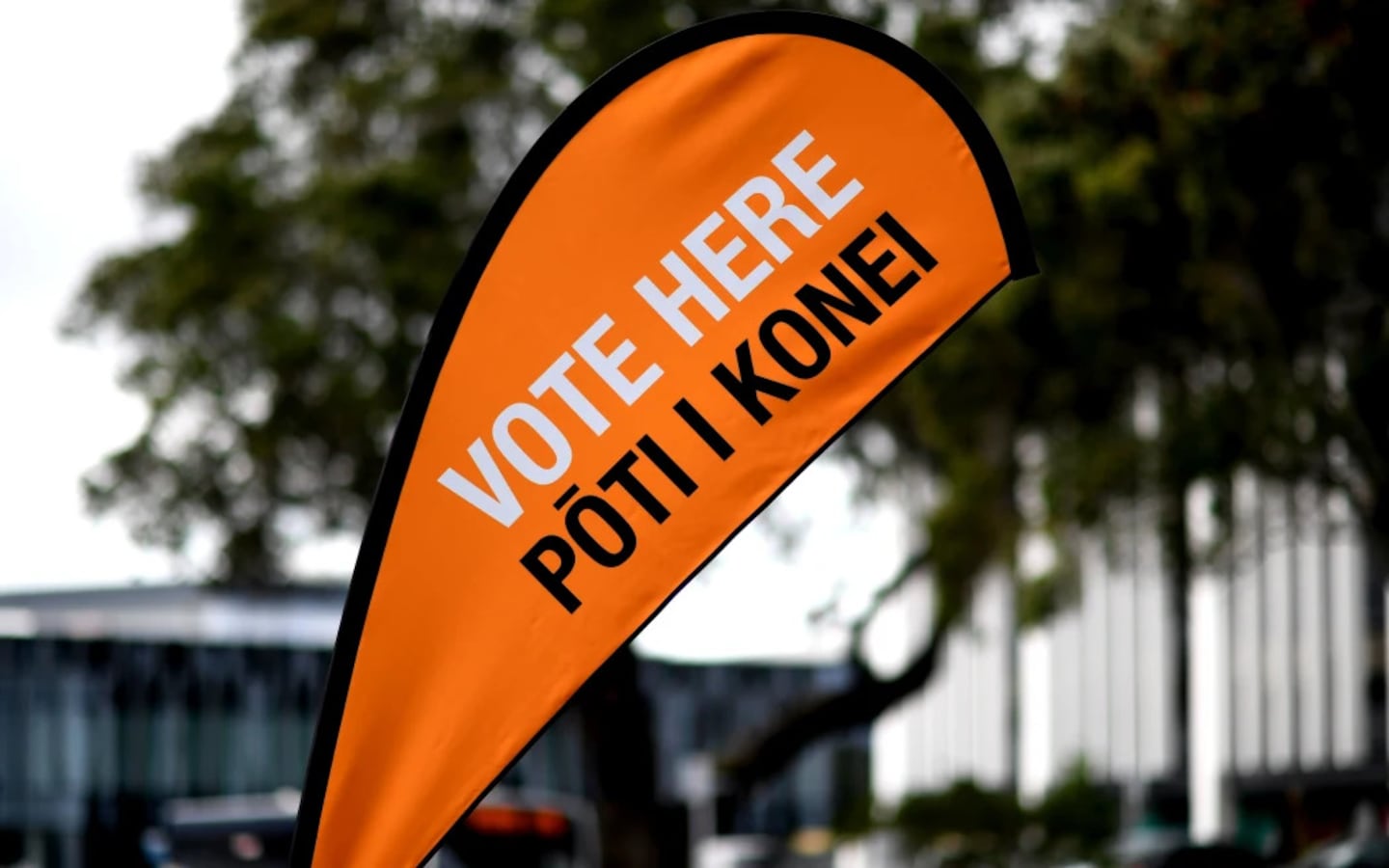The Government’s proposed overhaul of New Zealand’s electoral laws is being criticised for potentially undermining Māori voter turnout, particularly among young and first-time voters.
Justice Minister Paul Goldsmith announced legislation that would end same-day enrolment and require all voters to be enrolled by midnight the Sunday before advance voting begins, 13 days ahead of election day.
Voters have been able to turn up to the booth at any time during the advance voting period and enrol at the same time, as well as on election day, with their vote being counted as a special vote.
But that is all set to change as part of a suite of changes aimed at reducing the administrative burden on the Electoral Commission.
Key changes in the overhaul includes:
- Requiring 12 days of advance voting at each election.
- Introducing automatic enrolment updates so the Electoral Commission can update people’s enrolment details using data from other government agencies.
- Enabling greater use of digital communication by removing postal requirements for enrolment.
- Creating a new offence that prohibits the provision of free food, drink or entertainment within 100 metres of a voting place while voting is taking place. It will be punishable by a fine of up to $10,000.
- Reinstating a total ban on prisoner voting.
- Closing enrolment 13 days before election day to reduce pressure on post-election timeframes.
Goldsmith says the current system, which allows voters to enrol up to and including election day, has placed too much strain on vote counting.
“Allowing late enrolments, however well intentioned, has placed too much strain on the system. The final vote count used to take two weeks, last election it took three,” he said.
“If we leave things as they are, it could well take even longer in future elections. The 20-day timeframe for a final result will likely already be challenging to achieve at the next election without changes.”
But critics say the cost of that administrative efficiency may be a decline in Māori participation.
Electoral Commission data shows that in the 2023 General Election, 48 percent of Māori voters aged 18 to 19 enrolled or updated their details during the voting period.
In comparison, only 9.8 percent of non-Māori voters updated their enrolment during that period, compared to 17.3 percent of Māori voters overall.
Voters on the Māori roll were even more affected, with 18.9 percent updating or enrolling during the voting period.
These figures suggest the changes could directly suppress turnout among communities already underrepresented at the ballot box.
Green Party’s Tamatha Paul said the change will have a massive impact on Māori.

“We know that voter turnout trends show us about 60 percent of Māori are voting in our general elections and that they are overrepresented in the number of people that vote closer to the election date. So I’m worried that this is going to completely disincentivise Māori from voting, because it’s not convenient or accessible.”
The Government’s own Regulatory Impact Statement warns that Māori, Asian, Pasifika and younger voters are more likely to cast special votes or enrol during the voting period. The goal of a Regulatory Impact Statement is to help Ministers, MPs, and the public understand what the law could do before it’s passed.
It notes that setting an earlier enrolment deadline will increase the administrative requirements for Māori to exercise their voting rights under Article 3 of Te Tiriti o Waitangi and the Treaty of Waitangi.
Goldsmith has dismissed concerns that Māori voters will be disenfranchised by the earlier deadline.
“I’m very confident that Māori New Zealanders, like all other New Zealanders, will be able to get the message more than a year out that they need to get enrolled before early voting starts and I’ve got every confidence they can, and anybody who is arguing that Māori are sort of less capable of doing that, I just don’t agree with.”
Labour MP Duncan Webb says the Government should be focusing on lifting participation among groups with historically lower turnout, including Māori.
“I think it affects a whole lot of people. It affects Māori as well, and we do know that Māori have a lower voter turnout, and so we should be working harder to get Māori and other people who have low turnout to turn up, including young people.” He said.
The Regulatory Impact Statement also notes that closing enrolment ahead of election day has not been tested through detailed public consultation. It warns that potential risks and unintended impacts may not be fully understood.
Although the Minister admitted there was no consultation done with Māori, they will have their opportunity to express their views through the Select Committee process.
Tamatha Paul says, though, this is a consistent pattern of the government that they do not take the views of Māori seriously, and this legislation risks alienating rangatahi Māori, whose voting habits are still being formed.
“We should be doing everything we can to make sure that people are voting, but particularly our rangatahi, because we know that voting patterns for a lifetime are established when people are young. So I’m thinking of rangatahi Māori and thinking of all the things that we can do to engage them to vote and how this bill undermines that.”
Te Pāti Māori has also condemned the changes, which include a ban on prisoner voting and an increase to the anonymous donation disclosure threshold.
“The government is restricting voting rights and making it easier for wealthy donors to influence our elections. All these changes, combined with the proposed ban on prisoner voting, are completely undemocratic, and Te Pāti Māori does not support them at all.”
The Bill makes a wide range of other changes, including:
- Enabling special vote processing to begin earlier.
- Increasing the Electoral Commission’s board from three to up to seven members.
- Setting a single deadline for all candidate nominations.
- Changing party registration requirements and timeframes.
- Providing flexibility on the contact details that can be included in promoter statements.




